IPL 2018: Performance Analysis of all eight teams
A look at all the teams and how they have performed in the IPL so far.
View : 4.2K
2 Min Read
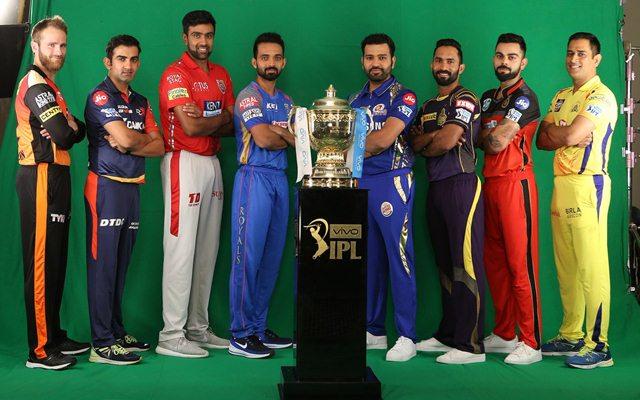

(Photo Source: Twitter)
The eleventh edition of the Indian Premier League (IPL) is set for a grand ending. We will know the winners of this edition in a few hours as two-time champions Chennai Super Kings (CSK) will take on 2016 champion Sunrisers Hyderabad (SRH) in the final to be played at the Wankhede Stadium in Mumbai.
IPL 2018 was looking quite predictable till the middle period as most teams barring three (SRH, CSK and Kings XI Punjab) were struggling to win games. However, things started to change towards the end as teams like Kolkata Knight Riders (KKR), Rajasthan Royals (RR), Royal Challengers Bangalore (RCB) and Mumbai Indians (MI) started winning more consistently while KXIP’s run came to a screeching halt.
It became more competitive and hence more absorbing as the tournament progressed into the last leg. Eventually, KXIP got knocked out along with defending champions MI and RCB and KKR and RR went through to the playoffs along with SRH and CSK – the top two teams.
In the playoffs, SRH lost their first qualifier, taking the stretch of their loss to four consecutive games, but put up a brilliant performance in the second qualifier to knock KKR, who defeated RR in the eliminator, out of the fray. They set up the title clash with CSK who made the final by winning the first qualifier.
Here we take a look at the performance of all eight teams in IPL 2018:
Sunrisers Hyderabad (played 17; won 10; lost 7):
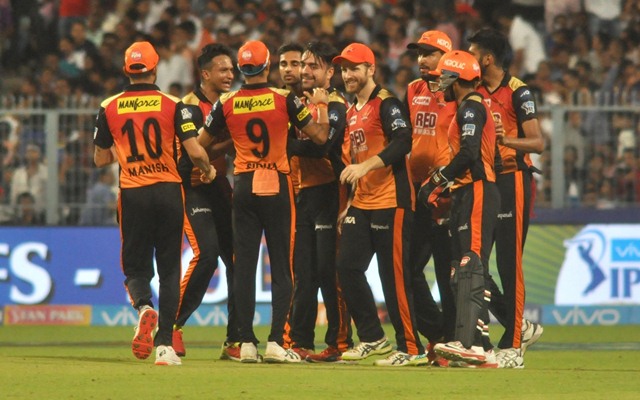
They buried the suspicion that the absence of David Warner would hit their chances, thanks to their bowling prowess. SRH’s main bowler Bhuvneshwar Kumar, who was the highest wicket-taker in 2016 and 2017 editions, did not succeed as big this year (9 wickets) but that also did not affect the SRH’s momentum. The likes of Rashid Khan (21 wickets), Siddharth Kaul (21 wickets), Shakib Al Hasan (14 wickets) and Sandeep Sharma (11 wickets) made up for all the lows for the Sunrisers.
In batting, their new skipper Kane Williamson is the highest run-getter in the tournament (735 runs in 17 matches) while Shikhar Dhawan (497 runs) and Manish Pandey (284 runs) followed next. Williamson’s captaincy skills also impressed all as he made a remarkable utilisation of his rich bowling resources.
The SRH qualified for the playoffs in just 11 matches but then lost four games at a stretch to raise a concern for their supporters but one believes it was the necessary law of average which they overcame at the right time. SRH’s only problem was lack of acceleration of runs in many games but their bowlers saw them pulling off victories even while defending low totals.
Chennai Super Kings (played 16; won 11; lost 5):
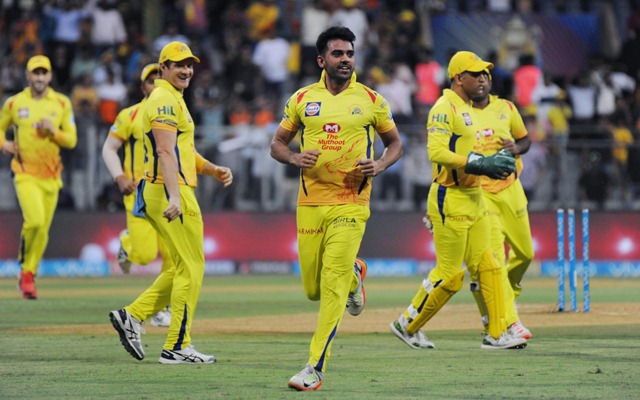
They returned after two-year suspension and were at it right from the word go. They snatched a thrilling victory against MI in their very first game, giving enough hint that the absence did not reduce their hunger. CSK had a bit of inconsistent run in the last eight league games (winning 4 and losing 4) but the way they won against SRH in the first qualifier, it showed that CSK turns into a ruthless unit once they are in the playoffs.
This year, CSK’s batting saw a boost because of the good forms of Ambati Rayudu (602 runs), skipper MS Dhoni (455 runs), Shane Watson (555 runs) and Suresh Raina (445 runs) while in bowling, the likes of Shardul Thakur (16 wickets), Dwayne Bravo (14 wickets), Lungi Ngidi, Ravindra Jadeja and Deepak Chahar (all 10 wickets) put up a strong performance. Even a not-so-impressive performance from Harbhajan Singh (7 wickets) did not ruin their chances. CSK really played like a strong unit this year. The only concern for CSK was a sudden inertia in their batting lineup.
Kolkata Knight Riders (played 16; won 9; lost 7):
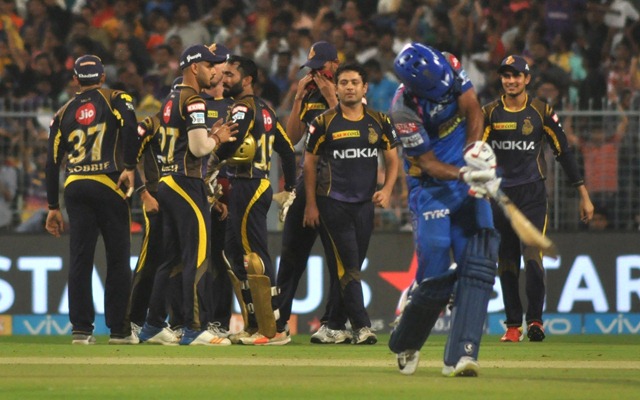
KKR have finished among the top four for some time now and this year too, they did well to end up as the third team despite many writing them off over their team selection and choosing an inexperienced captain in Dinesh Karthik. The ruling out of Mitchell Starc before the tournament started made it worse and till about the middle of the tournament, things did not look bright for them even there were glimpses of individual brilliance from the likes of Andre Russell, Sunil Narine, Karthik, Chris Lynn and Shubman Gill.
A 102-run defeat against MI hit their net run rate so badly that qualifying for the playoffs looked further difficult for KKR. But they did well from that point of time, winning three consecutive games and favoured by the results of some other games, made the playoffs as the third team.
They grabbed an unbelievable win against RR in the eliminator but surrendered against Rashid Khan’s brilliance in the second qualifier. Karthik (498 runs), Lynn (491 runs), Narine (357 runs) and Robin Uthappa (351 runs) did well with the bat while in bowling, Narine and Kuldeep Yadav (17 wickets each), Piyush Chawla (14 wickets) and Andre Russell (13 wickets) did well. KKR, one thought, missed a key fast bowler up front.
Rajasthan Royals (played 15; won 7; lost 8):
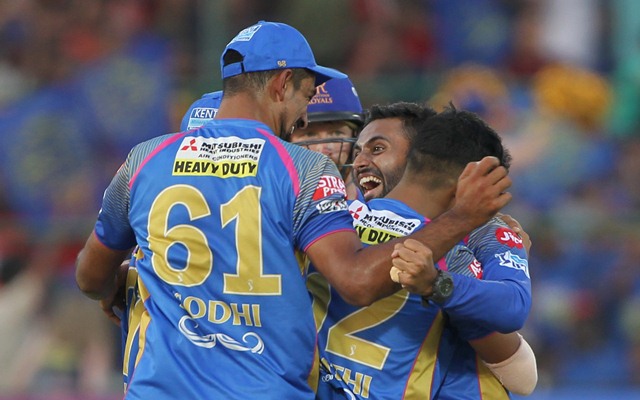
They would consider themselves lucky to have qualified for this year’s playoffs. The team lost Steven Smith before the tournament began but his replacement Ajinkya Rahane had a dull season this year. RR had only six points after nine games but yet made it to the last four, thanks to some powerful batting by Jos Buttler who hit five consecutive fifties at one point of time and also because some team lost their key games.
RR’s best batsman this year was Sanju Samson (441 runs) who did not feature in the top 10 and also had a loss of form as the tournament progressed. Rahane scored 370 runs while the high buy Ben Stokes had a forgettable campaign with just 196 runs. In bowling, debutant Jofra Archer did the best for RR by picking up 15 wickets while Shreyas Gopal, Krishnappa Gowtham and another expensive buy Jaydev Unadkat took 11 wickets apiece.
Stokes was a failure with the ball as well, taking just eight wickets. All in all, RR did not click on their return to the IPL despite picking a high-profile team and had to bank on individual performances to pull them throughout the tournament.
Mumbai Indians (played 14; won 6; lost 8):
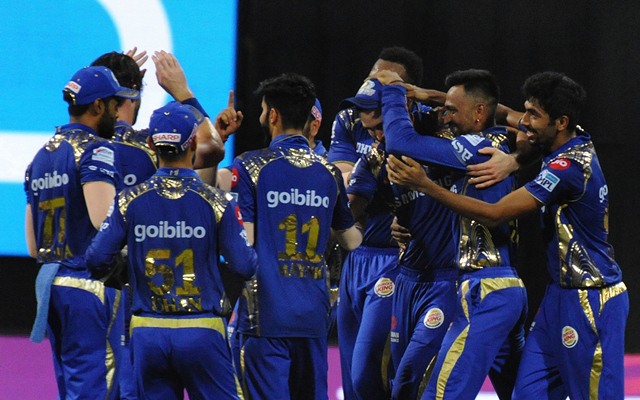
The even years are never good for MI but they had a horrible start to their title defence campaign, winning just one of their first seven games. Despite having some talented players in their ranks, MI somehow failed to fire this season. The second half of their campaign was better as they won four of their seven games, including a heavy victory against KKR which lifted their net run-rate to impressive heights, but a shock loss to bottom-placed Delhi Daredevils (DD) in the last game ended their run this season.
The loss showed how unpredictable was MI as a team this year. The loss of batting form of players like Rohit Sharma, Kieron Pollard and Hardik Pandya troubled MI the most and there was never enough back-up to replace the big players’ failure.
MI’s only performing batsmen this year were Suryakumar Yadav (512 runs) and Evin Lewis (382 runs) while in bowling, Hardik (18 wickets), Jasprit Bumrah (17 wickets) and Mayank Markande (15 wickets) were the high performers. Pollard’s non-existent performance this year was a big loss for MI.
Royal Challengers Bangalore (played 14; won 6; lost 8):
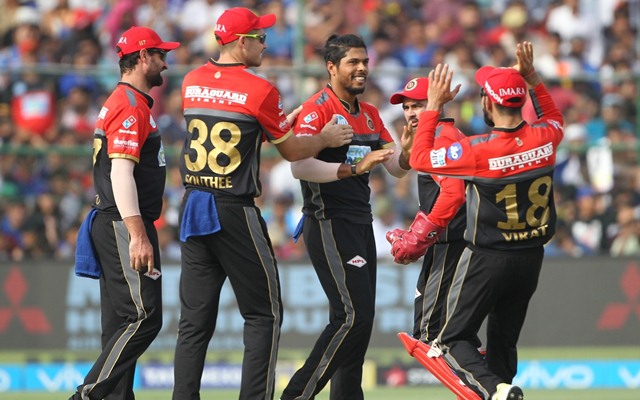
It was yet another year of heartbreak for RCB as they failed to qualify for the playoffs even after a late surge. Skipper Virat Kohli (530 runs) and just-retired AB de Villiers (480 runs) were the only two performers with the bat on whose shoulders the entire team banked for all games. The third best batsman for RCB this year was Mandeep Singh (252 runs) which tells the team’s woes. In bowling, Umesh Yadav (20 wickets) did exceedingly well but he never had the backing from others to keep up the pressure on the opponents who found an escape route once Yadav finished his spells.
YuzvendraChahal with 12 wickets was the next best for RCB while Mohammad Siraj finished with 11 wickets. RCB still had a chance for the playoffs after an ordinary start as they won a series of games and also had a decent net run-rate. But the loss in the crucial final league game against RR dashed their hopes and it was again a failure of their batting which derailed them. RCB has a great captain but as they famously say in cricket: A captain is as good as his team.
Kings XI Punjab (played 14; won 6; lost 8):
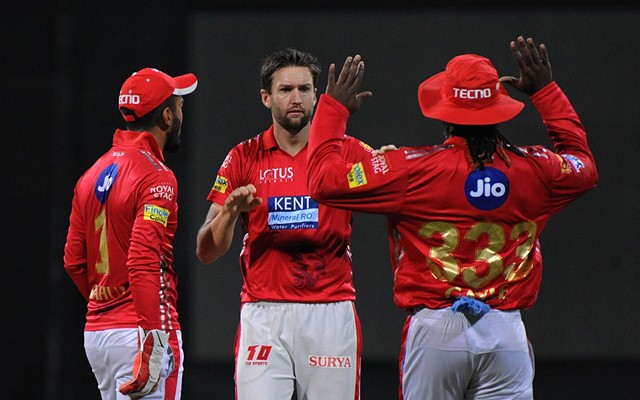
The biggest shocker of this tournament. KXIP have always been underachievers in the IPL, qualifying for the last-four stage only twice till date but they were doing great till the middle phase under their new captain Ravichandran Ashwin. The brilliant batting from KL Rahul (659 runs) at the top made them look unstoppable at one point of time and even the old horse Chris Gayle (368 runs) – who was bought at the last minute by the Kings in this year’s auction – hit a ton this season. But thereafter, tragedy struck as KXIP lost matches in a heap, winning just one of their last eight encounters.
The team went into a shell as they continued to lose and the three-run loss to MI in a game which Rahul was single-handedly winning for the Kings marked their ultimate fall this season. Only Karun Nair crossed the 300-run mark for the Kings. The Kings got too much dependent on Rahul it seems and that hit them as a team.
In bowling, Andrew Tye took 24 wickets to become the highest wicket-taker even without playing the playoffs but the next best bowlers for the Kings were Mujeeb ur Rahman (14 wickets) and Ankit Rajpoot (11 wickets) which shows the kind of gap that existed in the Kings’ performance.
Delhi Daredevils (played 14; won 5; lost 9):

Delhi Daredevils (DD) have not made the playoffs since 2012 despite making a lot of changes in its ranks. This year, they took Gautam Gambhir, a local lad and one of the most successful captains in the IPL, but yet their fortunes did not change. Instead, it went so bad that Gambhir even stood down from captaincy and also did not feature in the team’s remaining games.
However, DD’s high point this year was some brilliant individual batting performances from a couple of youngsters and the team could take solace from their show for the future seasons. One of them is Rishabh Pant, the 20-year-old wicket-keeper-batsman who once again lived up to the expectations and showed what a murdered he can be with the bat (684 runs).
His 128 not out against a formidable bowling side like SRH speaks abundantly about his batting prowess though the DD’s lack of bowling firepower could not transform those quality performances into wins. Stand-in captain Shreyas Iyer (411 runs) was another top performer with the bat for Delhi as was Prithvi Shaw (245 runs in 9 matches) – India’s World Cup-winning U-19 captain. But DD’s bowling came a cropper as nobody other than Trent Boult (18 wickets) and Amit Mishra (12 wickets) could cross the two-digit mark.
Download Our App